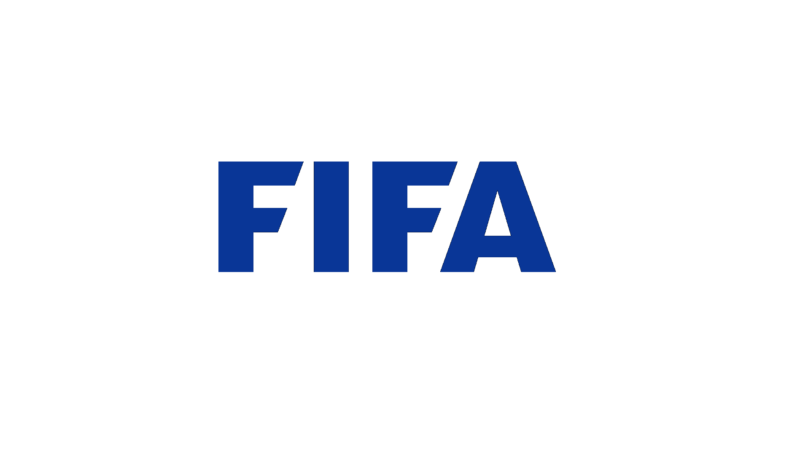The wide world of sport scandals
In this outtake from the Weekend Mumbo, Damian Francis discusses the troubled relationship between sport, athletes and brands.
Sports prime time is back! The NRL has started and the AFL is almost here.
This weekend I’ll be glued to the TV watching the Supercars Thrifty Newcastle 500. Next weekend it’s the STC Saudi Arabian Grand Prix.
That last one is a good segue. A Formula 1 race in Saudi Arabia… Not the most obvious of locations for the highest level of motor racing and certainly not one without perception challenges.
The country’s tourism body has been touted to (at the time of writing) become the major sponsor for the FIFA Women’s World Cup. I am sure I don’t have to point out the irony if that were to happen.

Today’s newsletter is about the troubled relationship between sport, athletes and brands, because the three main parties in the sports marketing industry do not seem to be getting along.
In various conversations I’ve had over the last few weeks the topic has come up a number of times with a lot of head scratching.
The last 12 months in particular has been a sobering affair.
To refresh your memory:
The Manly Warringah Sea Eagles Pride jersey own goal and the reluctance to run a pride round, the FIFA World Cup hosting plus the Budweiser fiasco, the cessation of Alinta Energy sponsoring the Australia Men’s cricket team, the emergence of Saudi-backed LIV Golf, the Hancock Prospecting versus Netball Australia saga and so on.
Is this the norm now? Is it acceptable? Where do brands stand? What on earth is going on?
Sponsors versus athletes
“I think it’s a dangerous thing to grow up and to be exposed to this stuff to the point where you live in a world where gambling and the AFL are synonymous with each other.”
That was former Western Bulldogs AFL captain Easton Wood talking to the ABC. But the fact of the matter is that you could sub out ‘AFL’ for most other sports and ‘gambling’ for a range of other brands.
Sadly, we have seen a number of sponsorship deals which have raised eyebrows, including the aforementioned gambling’s relationship with pretty much every major sport in the world. But not much is ever done about it.
Vaping is another big one. Look at Vuse and McLaren. A team with two young drivers including Australian Oscar Piastri. That’s one partnership I wouldn’t want my Formula 1 obsessed child supporting, but he wants to back the Aussie.

McLaren driver Oscar Piastri. Source: McLaren
While the sporting C-suite seems fine to let this type of partnership through to the keeper, some athletes aren’t so happy about it.
Take the example of Donnell Wallam, a 28-year-old Noongar woman and Queensland Firebirds shooter in Super Netball. She had originally refused to wear the Hancock Prospecting logo and was backed up by other players.
Negotiations between the players and Super Netball plus Hancock Prospecting lead to an agreement to wear the logos being reached, before Hancock Prospecting apparently pulled the pin on the $15m sponsorship regardless.
Is it Wallam’s right to take a stance? Or Hancock Prospecting’s right to see the logo on all player’s jerseys once the deal is done?
In an article by Nick Tabakoff in The Australian on the issue, he quoted Paul Kind, CEO at TSE and co-owner of the Sydney Kings as saying, “It only takes a single player of influence to make a stand – and then, in conservative sports like cricket or netball, it becomes almost untenable. In investing in sports, companies are looking for community goodwill as a result of their investment in the sport. If they don’t get that, it’s not surprising they walk away.
“The rise of the individual player is a can of worms for sport.”
On the flip side, with some athletes becoming bigger than the games they play, perhaps it’s time to embrace their input into sponsorship deals. Or at the very least ensure that they have better commercial understanding and the team C-suite have better cultural understanding.
Sports teams and codes behaving badly
One could suggest Formula 1 thinks the drivers should do just that. The FIA, the governing body of the sport, earlier this year changed the regulations to make drivers seek permission to make personal statements.

A new clause clamped down on “the general making and display of political, religious and personal statements or comments notably in violation of the general principle of neutrality promoted by the FIA under its statutes.”
It came after notable driver backlash around racing in certain countries with poor human rights records, particularly from Sir Lewis Hamilton and Sebastian Vettel, between them 11-times World Champions.
How is the muzzling, or even the contemplation of muzzling, of athletes (effectively the stars of the show) considered positive in any way?
Isn’t that a warning to sponsors that perhaps they don’t want to play this particular game? There are examples closer to home.
Take the Manly Sea Eagles and the Pride jersey fiasco of July last year. Not a great look.
Or how about the SMH anonymous poll that suggested NRL teams were not willing to back a Pride round? “Overwhelmingly against it…” was the headline.
Under the circumstances, how do brands even contemplate backing these sports and teams?
To paraphrase three senior executives I spoke to this week, the discussion around whether the current situation in various sports was problematic and whether that should affect investment never cropped up. Not once.
One used the Pride round shocker as an example. Major brands they worked with that sponsored the sport did not seem to have concerns. Or if they did, they were not raised.

“It’s never come up in any meetings I’ve been involved in. Which, thinking back, surprises me a bit,” I was told.
A more recent example is the proposed Visit Saudi Arabia sponsorship of the FIFA Women’s World Cup 2023. After repeated calls to cancel the deal (it was interesting to even hear of the deal in the first place), there is still no confirmation on the matter.
You would have the right to be confused right now. Athletes getting trodden on by sponsors, good causes getting trodden on by teams and sport, and teams and sports not willing to take a stand against potentially inappropriate sponsors. Who can change anything in this topsy-turvy world?
How about the fans? They are what makes the sporting world turn, right? Without them the industry is dead in the water. But will they ever leave?
Sports slacktivism – the fans are professionals
Remember the term ‘slacktivism’? According to the Cambridge Dictionary, it is activity that uses the internet to support political or social causes in a way that does not need much effort, for example creating or signing online petitions.
And here lies one of the major problems. Sport fans have potentially taken slacktivism to an all new level.
Let’s take the Manly Sea Eagles as an example. The Pride jersey uproar came in late July. Players refused to wear the jersey in the July 28 match. 12,187 people turned up to that match. Nowhere near the smallest crowd it had that season.

Manly Sea Eagles players. Source: Manly Sea Eagles
At the next home game a crowd of 17,134 turned up. One of the biggest recorded at 4 Pines Park (alcohol sponsorship ahoy) for the season. Hardly the disaster you might expect after such a public failure.
What about the FIFA World Cup 2022? After the corruption accusations and the last minute Budweiser backflip, you could have been forgiven for expecting disaster. But it didn’t happen. Instead, FIFA basked in the glory of reporting record breaking audience figures.
Why are sports able to get away with this?
“I think a big part lies in economics,” one industry leader told me. “Each sporting league is essentially a monopoly. If you love a sport and want to see it at an elite level, there’s usually only really one vendor in town.
“Like all situations where demand massively outstrips supply, prices go up. In this case, we’re happy to pay a little more, including with our own morality because the alternatives don’t exist.”
Hmmm… the advertising industry and the moral compass again. Moving on.
“Add the psychology of sport being social, emotional, part of many peoples self identities as well as our short term memories and willingness to prioritse short term, concrete benefits over long term, abstract ones and you can see how sport is all but untouchable in terms of short term impact from any one scandal.”
So there you have it. Sport can seemingly fuck up as much as it wants and will largely be untouchable until one stakeholder is really willing to take a stand and others follow. But there is some serious complexity in that.
We could be in for some more uncomfortable times ahead. Like I said at the top – next weekend I’ll be watching the Saudi Arabian Grand Prix, with Aramco sponsored Aston Martins and Vuse sponsored McLarens. I’m part of the problem. Are you?

Damian Francis is editorial director at Mumbrella.

